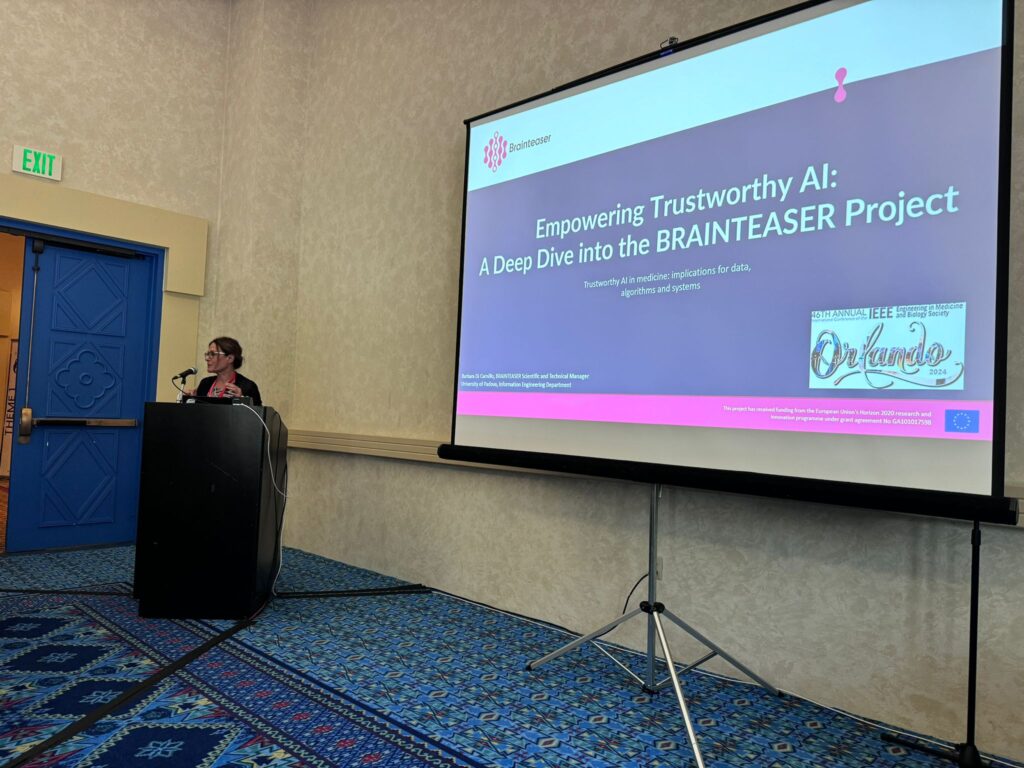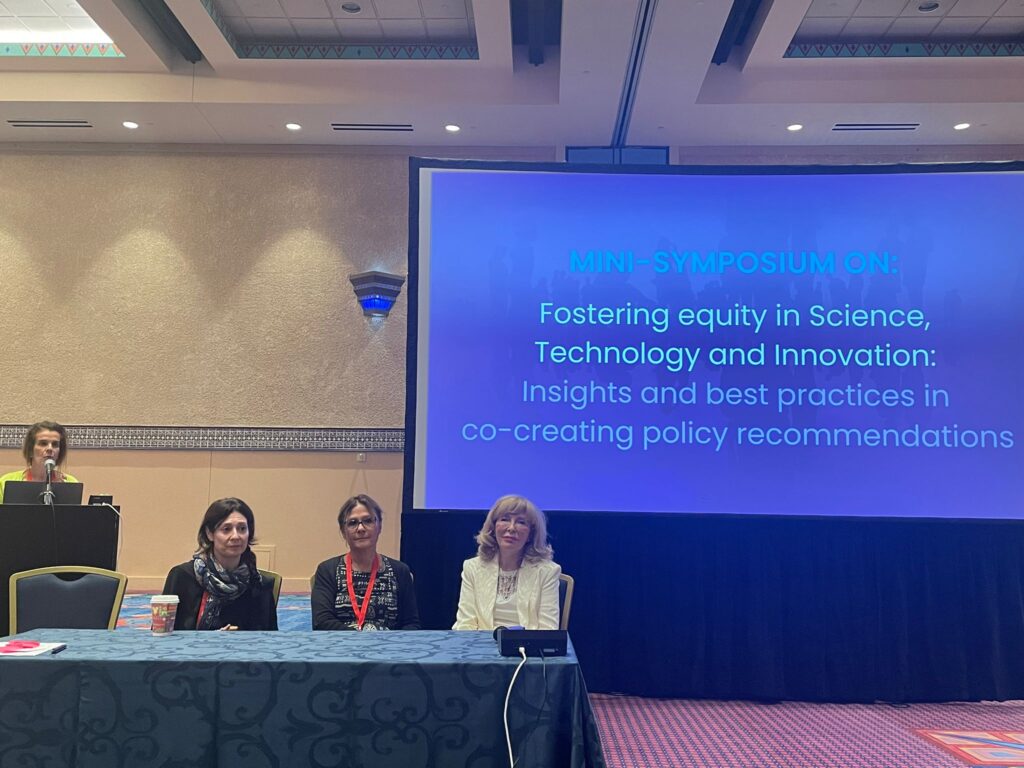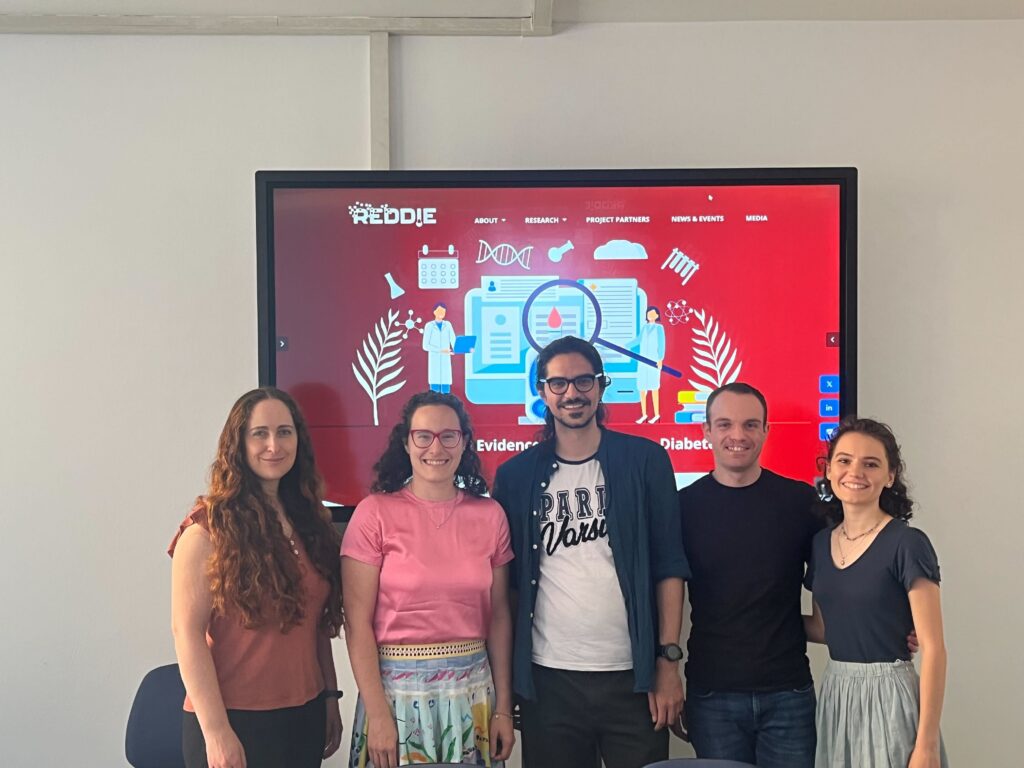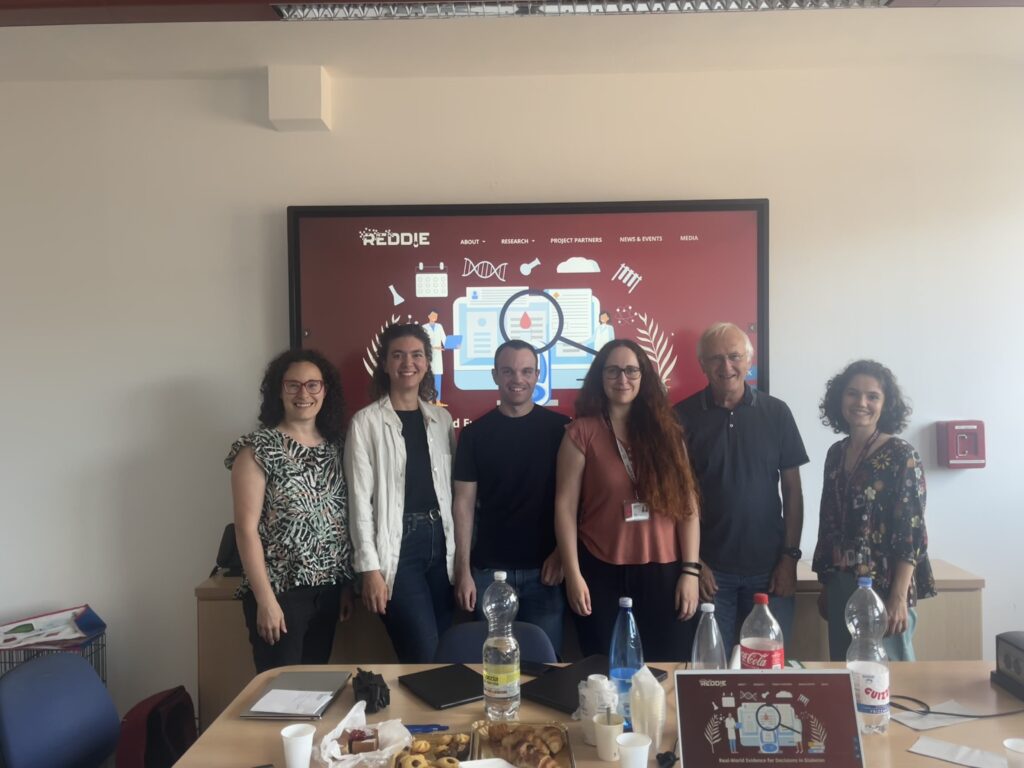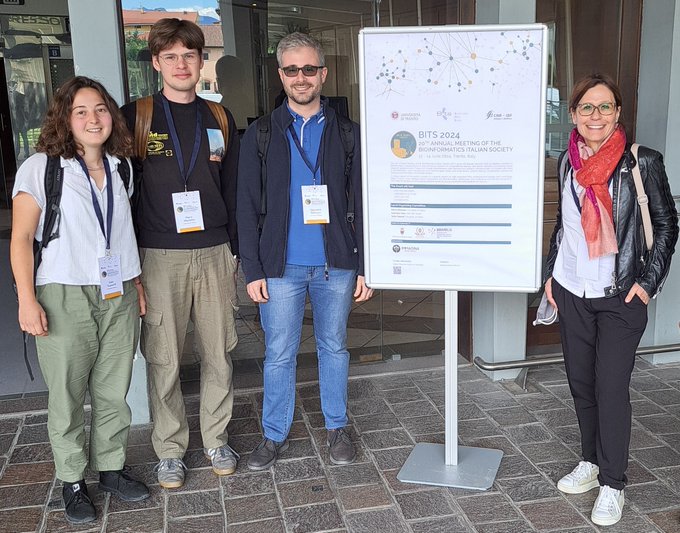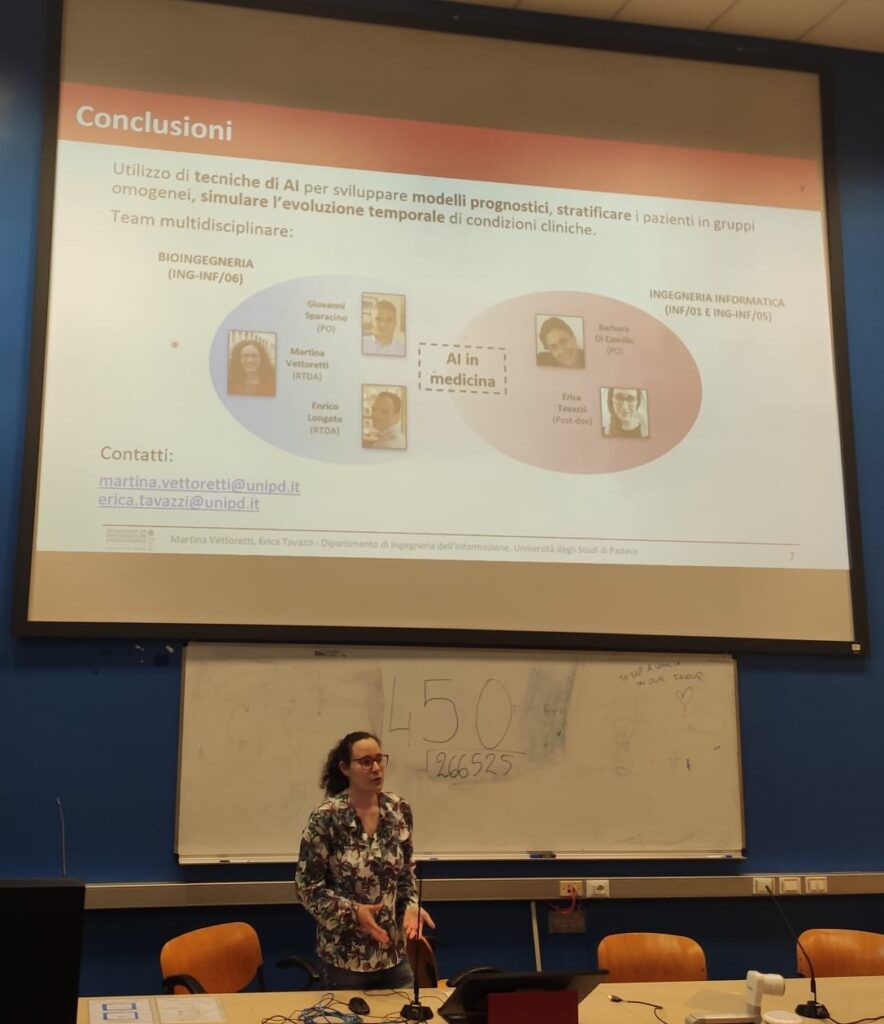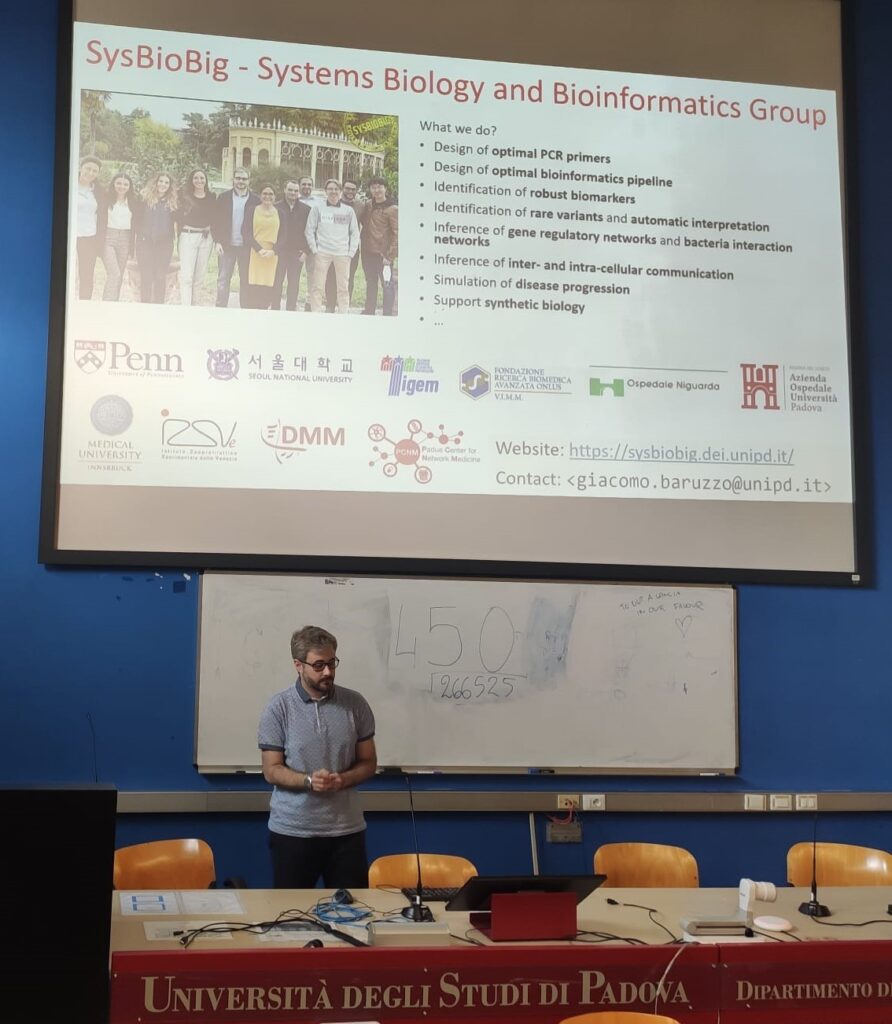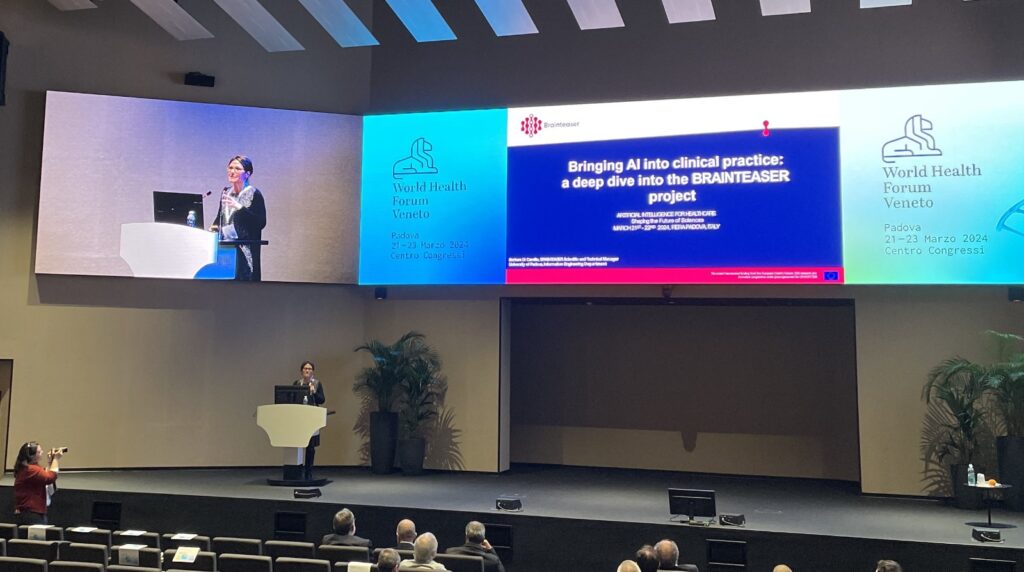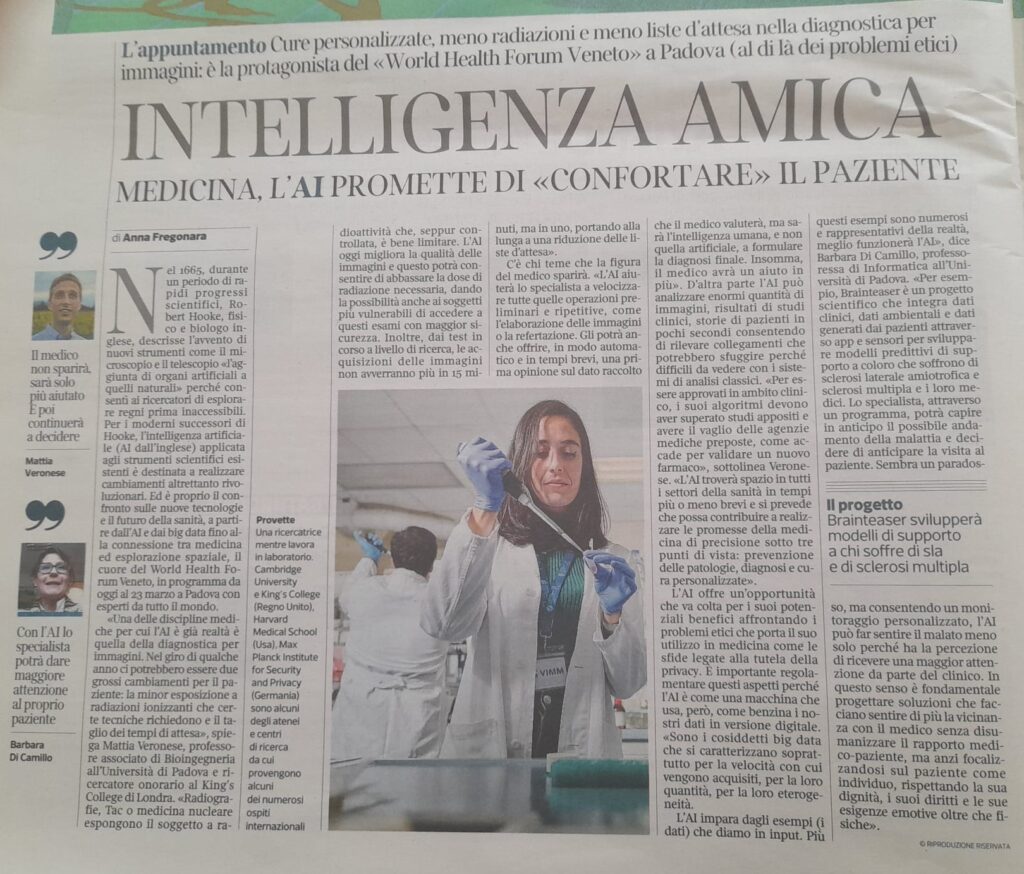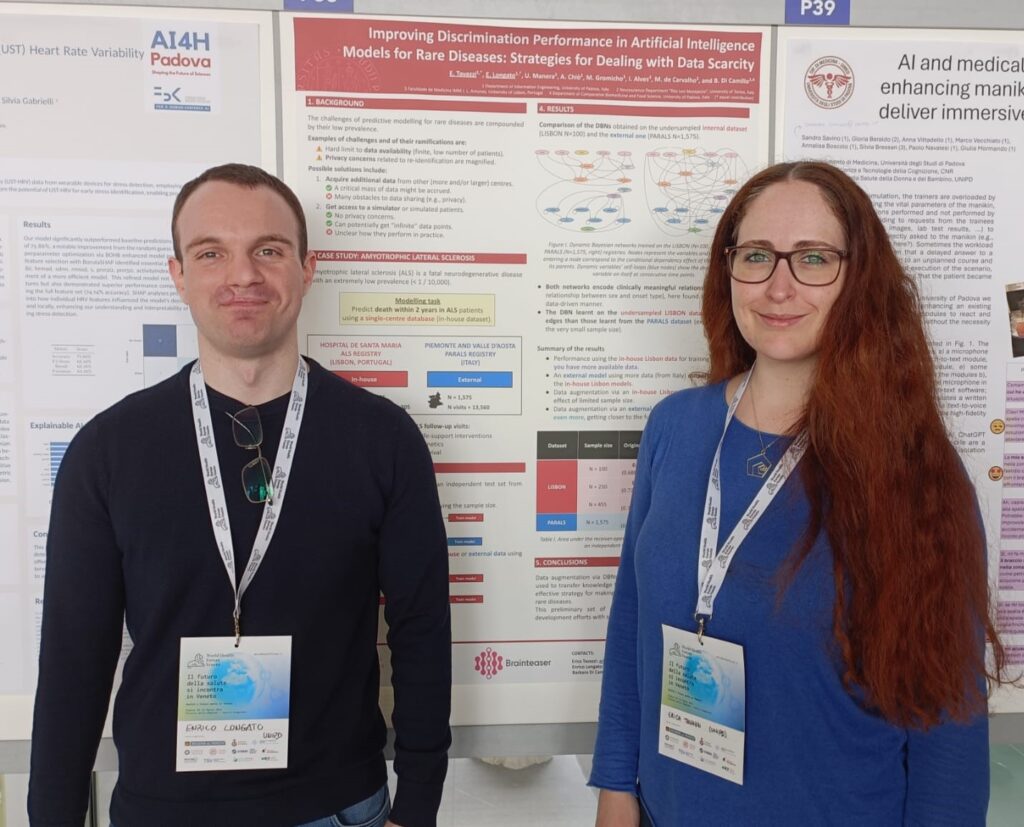From July 15th to 19th, 2024, our group participated in the 46th Annual International Conference of the IEEE Engineering in Medicine and Biology Society (EMBC) held in Orlando, Florida.
Our group was represented in the Health Informatics track with a poster presentation titled “Characterization of Chronic Kidney Disease Progression in Patients with Diabetes via Group-Based Multi-Trajectory Modeling”, authored by Alessandro Guazzo, Enrico Longato, Gian Paolo Fadini, Giovanni Sparacino, Rema Padman, and Barbara Di Camillo.
Additionally, our Principal Investigator, Prof. Barbara Di Camillo, was an organizer and speaker for two impactful mini-symposia.
The first mini-symposium, “Trustworthy AI in Medicine: Implications for Data, Algorithms and Systems,” took place on Wednesday, July 17th. This session addressed the critical issue of trustworthiness in AI systems used in clinical settings. The discussion covered various aspects, from data collection and preprocessing to algorithm reliability and explainability, drawing on practical examples from international projects such as the 4CE consortium and the BRAINTEASER project.
The second mini-symposium, “Fostering Equity in Science, Technology and Innovation: Insights and Best Practices in Co-Creating Policy Recommendations,” was held on Friday, July 19th. This session focused on promoting equity in these disciplines through collaborative policy-making. Experts from diverse backgrounds shared their experiences and best practices. The symposium provided valuable insights into the co-creation process, highlighting the importance of inclusivity and diversity in shaping effective policies.
We extend our gratitude to the organizers for making our participation in EMBC 2024 a fruitful experience, marked by engaging discussions and potential collaborations.
